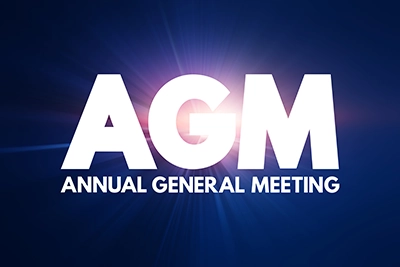This Update includes the following

Regulator Consults on new Consumer Standards
The Social Housing Regulation Act 2023 received Royal Assent on 21st July 2023 paving the way for significant changes including enhanced consumer regulation of social housing. As expected, following the passage of the legislation, the Regulator of Social Housing (RSH) has launched its consultation on the proposed new consumer standards that will underpin the regulation of the sector from April 2024.
The four new consumer standards proposed are:
- The Safety and Quality Standard
- The Transparency, Influence and Accountability Standard
- The Neighbourhood and Community Standard
- The Tenancy Standard
These new standards reflect the RSH’s expanded consumer regulation objective which now includes safety, transparency, and energy efficiency. Changes will strengthen the accountability of landlords for ensuring the quality and safety of their homes as well as driving greater landlord accountability to their tenants. There is also a much greater focus on transparency, organisational culture and giving tenants greater power to hold landlords to account.
The consultation will run for 12 weeks ending on Tuesday 17th October 2023
Overview of the proposed new standards
1. Safety and Quality Standard
- Replaces the existing Home Standard with a broader focus that explicitly includes safety.
- Landlords must have accurate up-to-date stock condition information and ensure their homes comply with ‘all relevant requirements’. This will require detailed knowledge based on a physical inspection of all homes at an individual property level.
- Properties must be maintained to at least the Decent Homes Standard (or its replacement) with effective systems to identify and tackle any non-decency where it occurs.
- Timescales will be introduced for acting on health and safety assessments.
- On repairs, maintenance, and planned improvement programmes there will be a greater emphasis on the outcome for tenants. Services must be ‘effective, efficient and timely.’
- On adaptations there is an expectation that registered providers assist tenants seeking adaptations to access appropriate services, with the objective of improving outcomes for tenants.
2.Transparency, Influence and Accountability Standard
- This aims to remove barriers for tenants in accessing their landlord and its services. It includes explicit requirements to treat tenants with fairness and respect so they can access services, make complaints, influence decision making and hold the landlord to account.
- Landlords must consider tenants’ diverse needs, using relevant information and data to inform and adapt their services, ensuring fair access to services and equitable outcomes for all tenants.
- There should be a number of routes and meaningful opportunities for tenants to influence and scrutinise strategies, policies and services.
- Landlords need to make effective use of the information they get from engagement, taking tenants views into account in their decision making.
- Landlords must identify a dedicated person responsible for complying with the consumer standards.
- Where a significant change in management arrangements is proposed, the landlord must consult meaningfully with tenants on the actual or potential advantages and disadvantages, including costs, in both the immediate and longer-term.
3. Neighbourhood and Community Standard
- Sets out expectations in relation to ‘shared spaces’.
- Landlords are expected to work co-operatively with other organisations to resolve issues affecting the upkeep and safety of neighbourhoods in which tenants live.
- Landlords are required to have set out their approach to deterring and tackling hate crime incidents.
- Landlords are required to have clear policies to support tenants affected by anti-social behaviour and domestic abuse, working with other agencies as appropriate.
4. Tenancy Standard
- Sets out requirements on lettings, tenancy sustainment and evictions. Arrangements must be fair and transparent throughout.
- Registered providers are expected to assist local authorities to meet homelessness duties, e.g. nomination agreement obligations.
- Adapted homes should be allocated to meet needs compatible with the purpose of the housing.
- Providers should also have policies to address under-occupation and overcrowding.
- Explicit obligation to prevent and tackle tenancy fraud.
- The current requirement to minimise the time a property is vacant between lettings is removed as this is primarily an economic issue – now the greater focus is on fairness and transparency.
Regulator publishes Annual Review of Consumer Regulation
The RSH has published its annual ’Consumer Regulation Review’ for 2022/23. This sets out key learning and case studies from the Regulator’s consumer regulation casework over the past year.
Issues around local authority compliance are specifically highlighted this year, as ten of the thirteen registered providers who breached the consumer standards were local authorities.
Cases involved the ‘Big Six’ Health and Safety issues including the following:
- Authorities that didn’t have the data required to provide assurance that they were compliant and therefore keeping tenants safe.
- Authorities with significant backlogs in carrying out vital safety checks.
- Failure to comply with legal requirements in respect of fire safety, either by failing to complete the relevant inspections and assessments or failing to complete follow-on remedial works.
- For the first time in a number of years there were landlords who were failing to meet gas safety requirements despite these regulations having been in place for over 20 years.
The report and case studies highlight the importance of councillors and other senior leaders understanding their core landlord responsibilities. Regardless of management arrangements landlords must take responsibility for ensuring they are fully compliant with regulatory requirements and have mechanisms in place to identify and tackle under-performance.
Key issues highlighted by the Regulator from it’s recent casework:
- Landlords must maintain a tight grip on the quality of the homes they manage
- Local authorities must act now to ensure compliance with the consumer standards
- Effective tenant engagement is fundamental to meeting the requirements of the consumer standards
- Meeting statutory health and safety requirements, including landlord gas safety requirements, remains an area of regulatory concern


Diary Date :CWAG Annual General Meeting
This year the CWAG Annual General Meeting will be on Thursday 28th September 2023. The meeting will take place over Teams. Please note the date in your diary.
The formal business of the AGM involves electing representatives of the Executive Group as well as reviewing the group’s finances and operating arrangements and Terms of Reference.
We are currently putting together the programme which will include presentations and discussion around regulatory changes and the professionalisation agenda.
CWAG Work Programme Review
As part of preparations for the CWAG Annual General Meeting, CWAG Executive Group will be reviewing and updating the CWAG work programme to reflect priorities for the next 12 months. The updated work-programme will then be considered by the membership at the AGM.
We are keen to have members’ views and suggestions to inform this exercise. If you have any suggestions or would like to contribute to the work-programme review, please contact the Policy Officer.
Recent Publications
On the Edge – Cost-of-living findings from the council sector – Joint NFA / ARCH Report – 2nd August 2023
This latest joint NFA / ARCH survey of the income collection and welfare benefits issues facing councils highlights significant rises in rent arrears over the past year. In looking to understand the drivers of current trends, the report identifies the impact of severe inflationary pressures which impact disproportionately on the poorest households as well as a welfare system that isn’t for purpose. The system of Discretionary Housing Payments (DHPs) is also under increasing strain with reducing resources and increasing numbers requiring assistance.
English Housing Survey (EHS) 2021/22 – Energy Report – Published by DLUHC – July 2023
This latest update survey of peoples housing circumstances is one of the longest running national surveys providing data back to 1967. This report focusses on energy efficiency and provides an overview by tenure, dwelling type and household characteristics. It includes information on different heating systems and controls, the methods of payment used by households to pay for their energy as well as the cost involved in uprating homes to Energy Efficiency Rating (EER) band C. There is also an analysis of working from home patterns by income and tenure.
